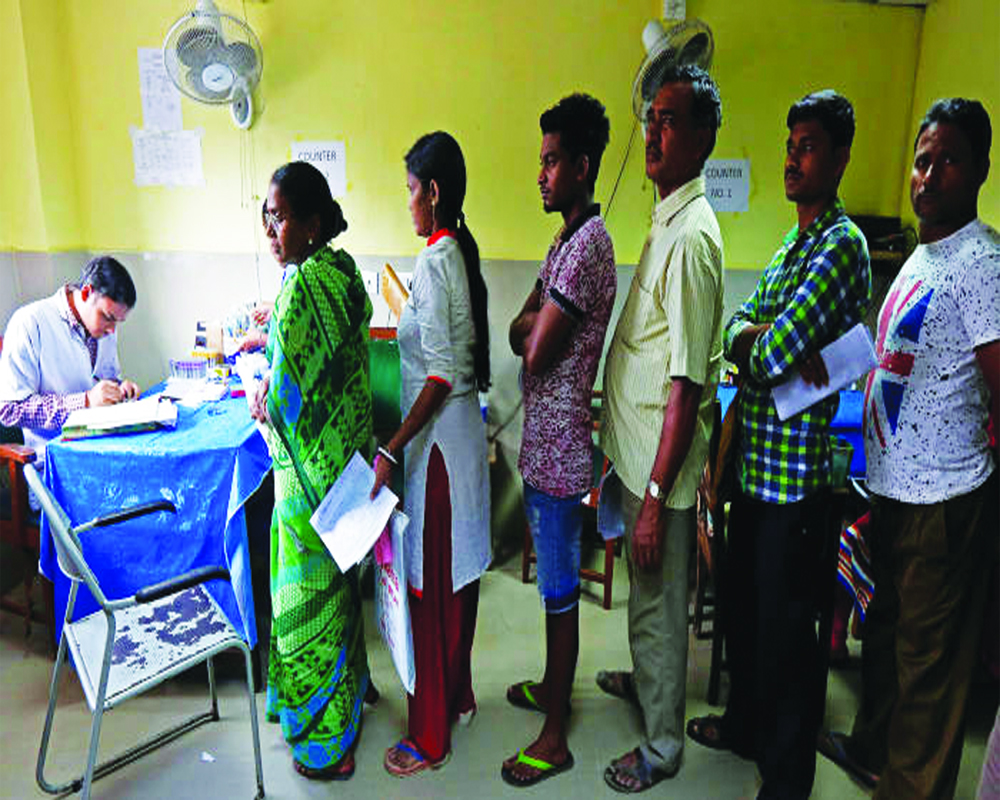There has to be support from the Government for medical Research and Development activities towards advanced health solutions
The COVID-19 pandemic has brought to light the disparity among the haves and have-nots in access to healthcare in the country. However, everyone should have working and living conditions that are conducive to good health. The collaboration of various stakeholders in the health sector, who must work as a team as well as individually, is essential to achieve a fairer and healthier world in which all members of society have access to quality healthcare services irrespective of their socio-economic status.
The first step towards achieving universal access to affordable health services is to have uniform, unbiased and economical healthcare facilities available for all. This will help in early detection and treatment of various diseases and infections. Preventive healthcare measures are of utmost importance in ensuring the overall health of a community.
While we have a plethora of health schemes in India like the ‘Ayushman Bharat Pradhan Mantri Jan Arogya Yojana (PM-JAY)’ to cater to the health of our citizens, it’s the execution part of such schemes that we lack in. Efforts are required to ensure that people are enrolled, databases are updated regularly and citizens avail the benefits of the scheme.
The Public-Private-Partnership (PPP) model can help in achieving the goal of accessible healthcare and realising the targets in the field. Private and Government entities need to collaborate and work in consonance, supplementing each other’s effort. They have to come up with specific strategies for various sections, such as those below the poverty line.
It is imperative to monitor health inequities and help provide better access to affordable and quality healthcare. Many people in our country struggle to avail primary healthcare services. It is important that the Primary Health Centres (PHCs) in every State cater to the healthcare needs of migrant workers who are from varied backgrounds.
Fostering and nurturing indigenous technology is extremely important in building affordable healthcare infrastructure in India. There has to be support from the Government for medical Research and Development (R&D) activities towards advanced health solutions.
As far as possible, bureaucratic hurdles must be removed so that innovators and scientists are able to avail the benefits of various policy initiatives. There has to be some provision for financial support and tax benefits so as to encourage these R&D entities. For instance, if a patient needs a heart valve replacement, Transcatheter Aortic Valve Replacement (TAVR) is an alternative to conventional heart surgery but the long-lasting results of it are still in question.
It seems that there is an industry-wide push to make these procedures popular, without really thinking about the long-term results. Currently, these valves are highly expensive in India (approximately Rs 22.5 lakh) owing to which a majority of the people cannot afford it. Even the cost of conventional valve replacement (approximately Rs 3 lakh) is also out of reach for many. The solution is indigenisation. The Transcatheter Aortic Valve Implantation (TAVI) using Nitinol stents developed by the National Aeronautical Lab (NAL) and the Council of Scientific and Industrial Research (CSIR) is promising in this respect. Unfortunately, there has been no support from any Central Government agency.
We all know that several organs are received only from human donors and there is a wide gap in the supply and demand. Today, science has reached a stage where these organs could be manufactured using one’s own cells through the 3D printing technology or by using a biological scaffold — like a shark fin — on which it could be grown. Shark skin is another potential tissue substrate to create biological tissue in view of its inherent tensile strength and durability. The Governments, both Central and States, as well as financial institutions mainly banks, should support these initiatives.
Unfortunately, due to ignorance on the part of regulatory bodies and other law enforcing agencies, even the licence for producing or manufacturing these has been poorly formulated and prioritised. Another important area is the realm of stem cell research with its tremendous regenerative potential, but we face too many hurdles in manufacturing and commercial production.
Further, it’s critical to create awareness about various health issues in regional languages that people understand. Plus, there is a pressing need to emphasise upon the importance of nutrition and immunity development in maintaining individual health.
Vaccination can help in keeping vaccine-preventable diseases away but there are new viruses and strains that are being discovered every day. Recently, we have witnessed how the second wave of the COVID-19 virus has taken the country by storm. Therefore, it is of utmost importance that our population has a fairly strong immune system, along with affordable healthcare and indigenous R&D in medical science.
The writer is a Padma Shri awardee and a cardiothoracic surgeon credited with India’s first bypass. He is Chairman and CEO of Frontier Lifeline Hospital. The views expressed are personal.


























